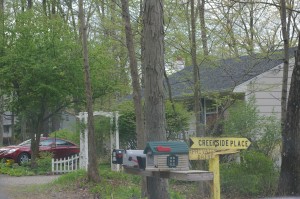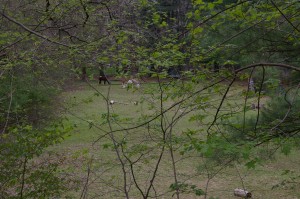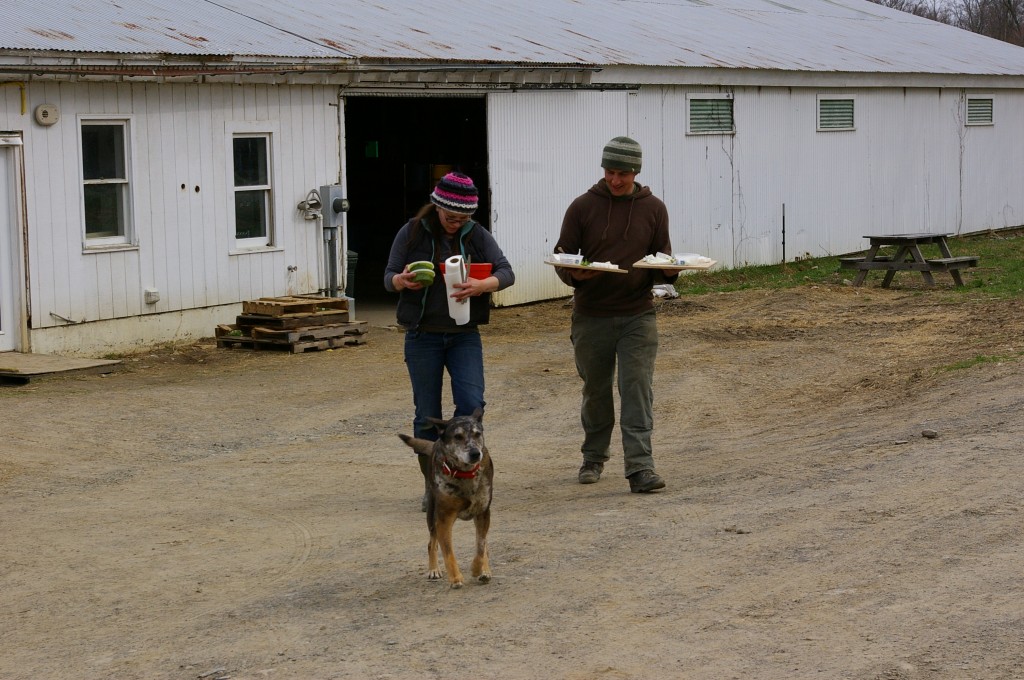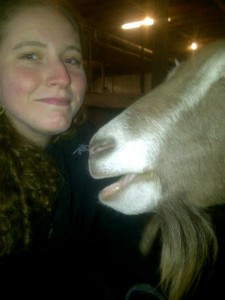
Few would know it, but just 15 minutes outside of Poughkeepsie, in a little suburban neighborhood in Pleasant Valley, NY there’s something quite interesting, something that all started when two parents decided to educate themselves and their children on raising and working with livestock. The Millers started with just two alpacas, but by 2006, their venture had spread over a variety of farm animals (the original alpacas, then goats, chickens, and even a llama). Before they knew it, they had a full-fledged operation on their hands, and they named it Creekside Acres Fiber Farm. Sitting on just an acre and a half of grazing land behind the Miller’s house, this full-fledged agricultural business hardly looks much bigger than a backyard.
Creekside Acres is a CSA fiber farm, which means at the start of every season, they have a group of friends, colleagues, and avid fiber workers invest in their herd. They take care of their animals with this investment over the winter, and come Spring-time, when the goats and alpacas are clipped, these investors get back a share of the season’s clippings, either in raw form, or as yarn. To get an understanding of scale, Creekside Acres sells the smallest share for $150, which amounts to 4% of their yearly harvest. They offer approximately 19 of these shares to the public.

If you’ve done the math for that, you can see it doesn’t amount to much, especially thinking of the labor costs in taking care of the animals and spinning the raw wool into yarn. However, the CSA element is only one of many business opportunities Candice Miller saw in their home farm. Not only do they sell wool and yarn, both in the CSA, wholesale, and at county fairs (look for their stand at this year’s Sheep and Wool Festival in Rheinbeck), but in the off season, the Millers use their animals both for profit and for the good of the community.
The growing diversity of the farm means that they are always learning about new animals, and in turn, teaching about them. They open their farm up to the local 4H club for kids of all ages to learn about where and how cloth comes into existence. They frequently have 4H volunteers on their farm, working alongside them to take care of the animals. This diversity also opened them up to the opportunity to run what they call a travelling petting farm. Farm to You Revue might at first look like your average petting zoo, but the Millers have gone to great efforts to make it more approachable and educational. They do the traditional birthday parties and events, but they are also present in schools and summer camps. They travel with a group of animals that can range from ponies and llamas to baby ducks and reptiles. The goal of this venture is to create additional revenue to sustain the farm, while bringing a farm-like experience to children who would not normally have the opportunity. In their presentations, they teach their students about how the animals live, and why they are kept, with an interactive element – a lot of petting, some bottle-feeding of baby goats, leading of smaller animals, and gentle handling of fowl and reptiles.






